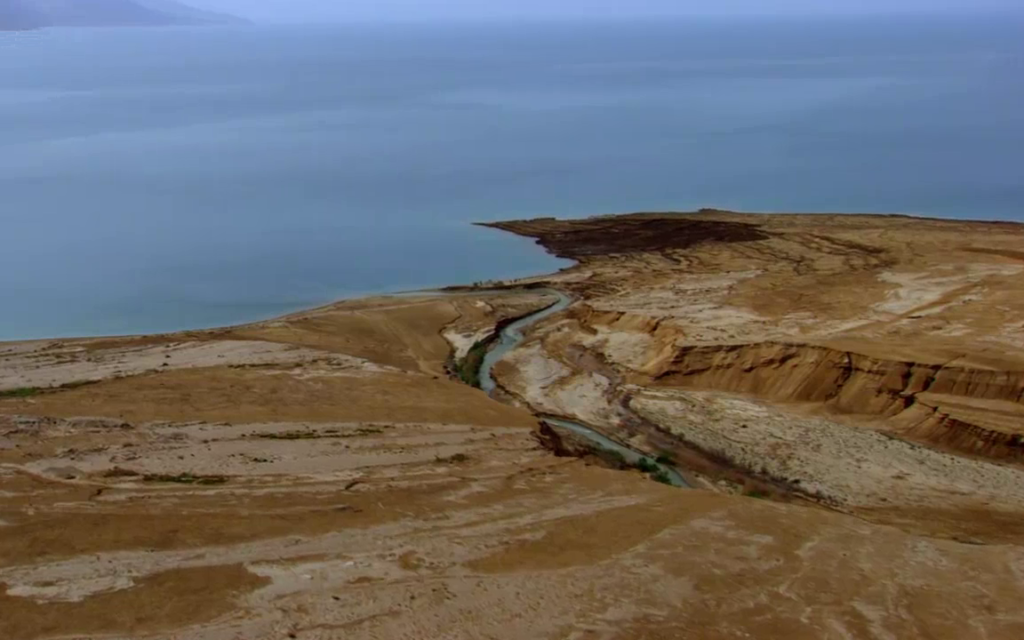Israel, Jordan and Palestinians discuss water co-operation

Water specialists from Israel, Jordan, and the Palestinian territories met last week in the gorgeously gilded surroundings of London’s Lancaster House to discuss the possibilities of regional water co-operation, writes Jenni Frazer.
The all-day seminar, held by the Anglo-Israel Association in co-operation with Israel’s Arava Institute for Environmental Studies, also attracted industrial and academic specialists from Britain, each eager to learn from each other and trade knowledge and information. The seminar was designated as the Ambassadors’ Round Table and was attended by UK Foreign Office officials as well as experts in sustainability of the environment.
Keynote addresses were given by Monther Hind of the Palestinian Wastewater Engineering Group, Suleiman Halasah, founder and director of the environmental group IGreens in Jordan, and Dr Clive Lipchin, director of the Arava Institute’s centre for transboundary water management.
Get The Jewish News Daily Edition by email and never miss our top stories Free Sign Up
Dr Lipchin, South-African-born, is known as a “water visionary” who looks beyond politics to try to solve problems in the region. He told the delegates that despite – or perhaps because of – years of drought, Israeli technology and its major desalination work now allows Israel, probably uniquely, to call itself a “water secure country” – meaning that it has developed technology sufficient to cater for the population’s needs.
He said it was vital to rethink about water beyond nationalism. “Water resources don’t conform to political boundaries”, he said.
Dr Lipchin presented an imaginative solution for how Israel, Jordan and the Palestinians could proceed, each bringing something different to the table. Israel, because of its success in desalination from the Mediterranean, will continue to be the major water supplier. Jordan, through a series of solar panels placed in its eastern desert, will supply much-needed energy for the region; and the Palestinians will develop natural agricultural resources through water buffers.
Dr Lipchin’s solution took note of the vast increase in population with which Jordan, specifically, is dealing – the huge numbers of Syrian refugees who have found shelter in the region. However temporary or permanent that might be, more water, more energy and more food will be needed in the region.
A different take on what to do was presented by Oxford University’s Dr David Johnstone, a senior research associate at the School of Geography and the Environment. Dr Johnstone’s speciality is waste water: he reported that globally there are two thousand million tons of waste water per day which are untreated. In the developing world urban rivers have become sewers and there are an estimated 2.6 billion people without proper sanitation, with a further 2 billon more people in this category by the year 2040.
His answer was to push governments to treat waste water and use its resources, among which are “energy, fertiliser, phosphates and building materials.” such Such treatment, Dr Johnstone predicted, could radically improve lives in the Middle East and worldwide.

Thank you for helping to make Jewish News the leading source of news and opinion for the UK Jewish community. Today we're asking for your invaluable help to continue putting our community first in everything we do.
For as little as £5 a month you can help sustain the vital work we do in celebrating and standing up for Jewish life in Britain.
Jewish News holds our community together and keeps us connected. Like a synagogue, it’s where people turn to feel part of something bigger. It also proudly shows the rest of Britain the vibrancy and rich culture of modern Jewish life.
You can make a quick and easy one-off or monthly contribution of £5, £10, £20 or any other sum you’re comfortable with.
100% of your donation will help us continue celebrating our community, in all its dynamic diversity...
Engaging
Being a community platform means so much more than producing a newspaper and website. One of our proudest roles is media partnering with our invaluable charities to amplify the outstanding work they do to help us all.
Celebrating
There’s no shortage of oys in the world but Jewish News takes every opportunity to celebrate the joys too, through projects like Night of Heroes, 40 Under 40 and other compelling countdowns that make the community kvell with pride.
Pioneering
In the first collaboration between media outlets from different faiths, Jewish News worked with British Muslim TV and Church Times to produce a list of young activists leading the way on interfaith understanding.
Campaigning
Royal Mail issued a stamp honouring Holocaust hero Sir Nicholas Winton after a Jewish News campaign attracted more than 100,000 backers. Jewish Newsalso produces special editions of the paper highlighting pressing issues including mental health and Holocaust remembrance.
Easy access
In an age when news is readily accessible, Jewish News provides high-quality content free online and offline, removing any financial barriers to connecting people.
Voice of our community to wider society
The Jewish News team regularly appears on TV, radio and on the pages of the national press to comment on stories about the Jewish community. Easy access to the paper on the streets of London also means Jewish News provides an invaluable window into the community for the country at large.
We hope you agree all this is worth preserving.
-
By Laurent Vaughan - Senior Associate (Bishop & Sewell Solicitors)
-
By Laurent Vaughan - Senior Associate (Bishop & Sewell Solicitors)
-
By Laurent Vaughan - Senior Associate (Bishop & Sewell Solicitors)
-
By Laurent Vaughan - Senior Associate (Bishop & Sewell Solicitors)






















